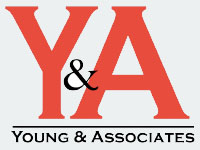ISO 9001:2015 Internal Auditor
Course Description
This two-day workshop for internal assessors will focus on the ISO 9001:2015 Standard; attendees will receive working knowledge of the ISO 9001 Standard, the auditing process and the use of audit tools, including guidelines for Remote Auditing based on ISO 19011:2018 & the ISO Audit Practice Guidelines.
Audience
Quality professionals, Process Owners who will be responsible for conducting audits to the ISO 9001:2015 Standard; individuals seeking to learn more about the standard for implementation purposes and individuals responsible for setting up internal assessor programs. There is no pre-requisite for this class.
What the Attendees Walk Away With:
1. Comprehensive workbook that provides on the Standard, auditing methodology and step-by-step explanation on how to set up and conduct internal ISO assessments.
2. Audit checklists for use during the audit.
3. Experience the audit process through in class role plays.
4. Upon successful completion of the Workshop, an ISO 9001 Internal Assessor Certificate.
16 Hours
Course Outline:
Workshop Overview
- Workshop objectives
- Introduction to ISO 9001:2015 and Auditing
- Quality Management System Terms/Vocabulary
Philosophy and Principles of ISO 9001:2015
- Quality System evolution
- Key concepts: Organizational Context, Process Approach, Risk Based Approach, Change Management
- Key Principles to ISO 9001:2015
- ISO 9001 relation to other standards using the HLS (High Level Structure) of ISO standards).
Interpreting ISO 9001:2015
- ISO 9001:2015 Element Analysis Exercise
- Element by Element Review including a review of requirements, audit points, and an understanding of not just the requirement, but also the intent of the requirements. Process focuses on understanding requirements and intent, role playing and team activities. The ISO 9001 Sections reviewed include:
- Section 4: Organizational Context (context of the organization, requirements of interested parties, scope of the Quality System and Process Approach)
- Section 5: Leadership (e.g., management’s responsibilities, Quality Policy and organizational responsibilities)
- Section 6: Planning (e.g., risk management, business objectives, change management)
- Section 7: Support (e.g., calibration, work environment, IT, HR, document control)
- Section 8: Operations (e.g., sales, purchasing, R&D, Manufacturing, Test and Quality Control)
- Section 9: Performance Evaluation (e.g., performance monitoring, customer satisfaction, auditing, management review)
- Section 10: Improvement (e.g., corrective action, continual improvement)
Audit Process
- Audit Preparation Activity
- Scheduling
- Documentation and Previous Audit Findings Review
- Developing the Audit Checklist
- Audit Performance
- Do’s and Don’ts During the Audit
- Use of Audit Check Sheets
- Interview Techniques
- Recording Audit Notes
- Audit Report Writing Activities
- Audit Report Format
- Audit Finding Wording
- Creating the Audit Report
Auditing Technique (Based on ISOM 19011:2018)
- Remote auditing
- Audit Roles (Auditor, Guide, Employee)
- Communication Skills (Verbal, Non-verbal)
- Handling Difficult Situations During the Audit
- Time Management During the Audit
Presentation of Final Exam
